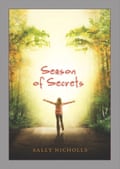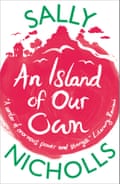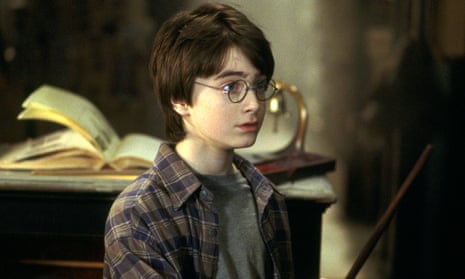Every so often, someone comments on how different all my books are. It’s not surprising; I’ve written everything from medieval apocalypse to contemporary realism. When this happens, I nod and agree that, yes, I am indeed a fabulously diverse and creative writer, thank you very much. But inside, I’m just hoping they don’t find me out.
As far as I’m concerned, all my books are about the same thing.
Families who love each other dealing with traumatic situations.
I’ve always adored books about loving families. One of the reasons I loved Noel Streatfeild’s Ballet Shoes so much is the sisters’ extended family of boarders, teachers and mad fossil-collecting great-uncles.
My favourite thing about Mary Norton’s The Borrowers wasn’t the miniature world Arrietty lives in, but the tight little family at the centre of it. Being loved is one of the most powerful feelings there is, particularly for a child. I was a well-loved child. And I wanted to see that love reflected in the stories I read.
Writer Susie Day agrees. “Having a supportive environment to grow up in doesn’t mean your life will be simple and easy. I HATE the prevalence of ‘urgh, all my family are soooo annoying, blerk’ as if that’s a universal. I don’t mean to sugar-coat or run away from harder realities, but I think there are plenty of kids who want to read about the warmth and security and solidity of family underpinning all the other mayhem of a story.”
“Kill the parents” is advice often given to writers for young people. I’m as guilty of this as the next author; in seven published novels, I have one extant mother, although in my defence I do have two fantastic foster mothers, and one much-loved stepmother. There are several, very practical, reasons for this. If you’re writing about a child, you can’t just ignore their parents – and when you have a limited number of words to play with, you don’t want to waste time giving complicated things like personalities to people who may have nothing to do with your story.

Furthermore, a children’s book should tell a child’s story. If the parents come along when the children step through the wardrobe, there’ll be far fewer sword fights, and much more emphasis on bedtimes, and the detrimental effect of ruling on King Peter’s School Certificate. A child in a children’s book should always fight their own battles; if Mum kills the dragon for them, there’s no story.
Some writers solve this problem by writing about emotionally distant or unhappy parents, particularly in YA. Sadly, many young people do live in families like this, and they do need stories about that experience. Eve Ainsworth says, “Because I worked with young people in very deprived areas, I saw families being strained and torn apart. I wanted to reflect the families that I witnessed.”
The families in my own books may be loving, but they come in all shapes and sizes; Molly in Season of Secrets lives with her grandparents, while Holly in An Island of Our Own is being raised by her 19-year-old brother. For Olivia in Close Your Pretty Eyes, the loving foster family she finds herself in is a source of great stress, as she is convinced that she will not be allowed to stay.
I think writers have to be careful not to over-rely on absent parental figures, however. The parent who ‘can’t cope’ is one of my pet hates in fiction; in my experience most parents are far from perfect, but nearly all of them love their children and want to do their best for them; even Molly’s absent father in Season of Secrets is trying. It’s one reason why I love authors such as Anne Fine, Jacqueline Wilson and Hilary McKay so much. “Jacqueline Wilsonish” might be synonymous with dysfunctional families, but the majority of her parents are imperfect people trying their hardest in extremely difficult circumstances.
Judith Kerr, when writing When Hitler Stole Pink Rabbit and its sequels, felt some trepidation about portraying Anna’s parents as rounded, fallible people, rather than the stock Mother and Father characters of traditional children’s fiction. But as Anna grows up, the interplay between herself and her parents becomes one of the narrative drives of the trilogy. Your relationship with your parents – or lack of one – will always be an enormous factor in determining who you are. As Zoe Marriott, author of Swan Kingdom, says, “Teens, as part of becoming young adults who are independent from their parents, must redefine their relationships with their families. And sometimes even within loving families there can be dynamics at play that kids need to recognise and disconnect from.’

That journey is never an easy one. But it’s one that’s right at the heart of some of the best writing for teenagers that there is.
One of my favourite things about writing for young people is the breadth of stories I’m allowed to tell. There will always be a place for novels about children and teenagers who are alone in the world. But let’s keep a space for stories about loving families too.
- Sally Nicholls’ An Island of Our Own is longlisted for the Guardian children’s fiction prize, it’s also available at the Guardian bookshop.
